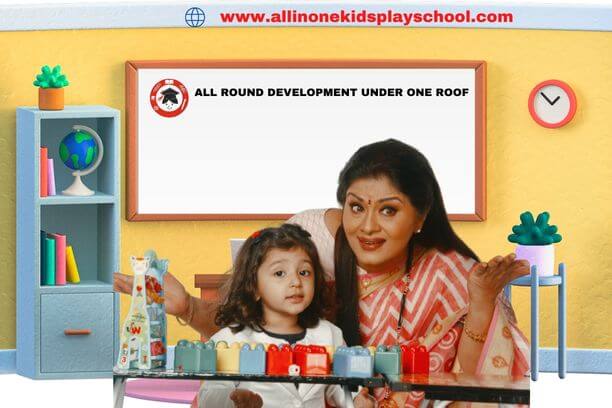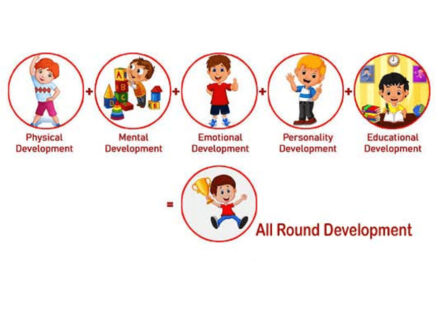Table of Contents
ToggleActivities involved in physical development of children-:
There are a variety of activities that can support the physical development of children, including:
- Play: Play is a crucial part of physical development, as it helps children to develop gross motor skills, coordination, and balance. Play activities can include running, jumping, crawling, climbing, and other physical movements.
- Play: Play is a crucial part of physical development, as it helps children to develop gross motor skills, coordination, and balance. Play activities can include running, jumping, crawling, climbing, and other physical movements.
- Play: Play is a crucial part of physical development, as it helps children to develop gross motor skills, coordination, and balance. Play activities can include running, jumping, crawling, climbing, and other physical movements.
- Yoga: Yoga is a gentle and low-impact sport that can help children develop physical strength, balance, and flexibility, as well as mindfulness and emotional regulation.
- Outdoor activities: Spending time outside, such as hiking, playing in parks, and going for walks, can provide opportunities for children to develop gross motor skills and enjoy physical activity in a natural environment.
- Gross motor skill building toys: Playgrounds, swings, slides, and other gross motor skill building toys can provide children with opportunities to develop physical skills and coordination.
- Fine motor skill building activities: Activities such as drawing, coloring, and manipulating small objects can help children develop fine motor skills and hand-eye coordination. It’s important to note that while these activities are important for physical development, it’s also essential to consider children’s individual interests, abilities, and needs when choosing activities to support their development.
Activities involved in intellectual development of children-:
There are many activities that can support the intellectual development of children, including:
- Reading: Reading books, stories, and other materials can help children build their vocabulary, improve their comprehension skills, and gain exposure to new ideas and information.
- Playing educational games: Games that require children to use their problem-solving skills, such as puzzles and brain teasers, can help them develop their cognitive abilities.
- Creative play: Activities such as building with blocks, drawing, and imaginative play can help children explore their creativity and develop their imagination.
- Hands-on learning experiences: Engaging in hands-on experiences, such as visiting museums, going on field trips, or conducting experiments, can help children understand complex concepts and learn about the world around them.
- Formal education: Attending school and participating in educational programs can provide children with structured opportunities to learn and grow intellectually.
- Brain-training exercises: Engaging in activities that challenge the brain, such as crossword puzzles, memory games, and strategy games, can help improve cognitive function and build problem-solving skills.
- Music and art: Engaging in music and art activities can help children develop their creativity and improve their fine motor skills. It’s important to consider children’s individual interests and abilities when choosing activities to support their intellectual development. Encouraging children to explore their passions and interests can also play an important role in their intellectual growth and development.
Activities involved in emotional development of children-:
There are many activities that can support the emotional development of children, including:
- Play: Play is an important way for children to express their emotions, build their self-esteem, and develop their social skills.
- Spending time with loved ones: Spending time with family and friends can help children feel secure and loved, and provide opportunities for them to practice empathy and develop their social skills.
- Practicing empathy and compassion: Encouraging children to put themselves in others’ shoes and respond to others’ emotions with kindness and compassion can help them develop their emotional intelligence.
- Talking about emotions: Encouraging children to talk about their feelings and providing a supportive, non-judgmental environment can help them understand and regulate their emotions.
- Learning about emotions and emotional regulation: Reading books, watching videos, and participating in educational programs about emotions and emotional regulation can help children understand and manage their emotions.
- Engaging in creative activities: Activities such as drawing, painting, and writing can provide an outlet for children to express their emotions and work through difficult feelings.
- Mindfulness and relaxation techniques: Practicing mindfulness and relaxation techniques, such as deep breathing, meditation, and yoga, can help children manage their emotions and reduce stress. It’s important to consider children’s individual needs and interests when choosing activities to support their emotional development. Providing a safe and supportive environment and modeling healthy emotional expression can also play a crucial role in children’s emotional growth and well-being.
Activities involved in personality development of children-:
There are many activities that can support the personality development of children, including:
- Encouraging exploration and self-discovery: Allowing children to explore their interests, passions, and talents can help them develop a strong sense of self and identity.
- Fostering positive self-esteem: Encouraging children to value and accept themselves, and to build on their strengths and positive qualities, can help boost their self-esteem and confidence.
- Providing opportunities for self-expression: Encouraging children to express themselves through activities such as art, music, or writing can help them develop their unique personality and individuality.
- Encouraging independence: Allowing children to make decisions and solve problems on their own can help them develop their sense of self and independence.
- Building resilience: Teaching children coping skills and helping them build resilience in the face of adversity can help them develop a strong and confident personality.
- Developing social skills: Encouraging children to interact with others and develop their social skills can help them understand and navigate social norms and relationships, which can shape their personality.
- Promoting values and morals: Providing a positive role model and teaching children about values and ethics can help them develop a strong sense of morality and integrity, which can guide their behavior and shape their personality.
It’s important to consider children’s individual needs and interests when choosing activities to support their personality development. A safe, supportive, and encouraging environment can also play a crucial role in children’s personality growth and well-being.
Activities involved in social development of children-:
There are many activities that can support the social development of children, including:
- Encouraging social interaction: Providing opportunities for children to play with others, participate in group activities, and make friends can help them develop their social skills and relationships.
- Modeling positive social behavior: Demonstrating appropriate social behavior, such as taking turns, sharing, and showing empathy, can help children learn and internalize these behaviors.
- Teaching communication skills: Encouraging children to express themselves and to listen to others can help them develop effective communication skills.
- Fostering empathy and compassion: Teaching children about emotions, perspectives, and the importance of kindness can help them develop empathy and compassion.
- Developing self-regulation and self-control: Teaching children coping skills and helping them regulate their emotions and behavior in social situations can help them become more socially competent and confident.
- Promoting moral and ethical development: Encouraging children to think critically and make decisions that are fair and just can help them develop a strong moral and ethical foundation.
- Encouraging positive relationships: Providing a positive and supportive family environment, and encouraging positive relationships with peers and others, can help children develop strong and secure relationships. It’s important to consider children’s individual needs and interests when choosing activities to support their social development. A safe, supportive, and encouraging environment can also play a crucial role in children’s social growth and well-being.
Activities involved in education development of children-:
There are many activities that can support the educational development of children, including:
- Reading and writing: Encouraging children to read books, write stories, and engage in writing activities can help them develop their literacy skills and a love of learning.
- Mathematics: Providing opportunities for children to explore mathematical concepts through play, games, and other hands-on activities can help them develop their numeracy skills and an understanding of mathematical principles.
- Science and technology: Engaging children in science experiments, technology projects, and other hands-on activities can help them develop an appreciation for science and technology and the skills to use technology effectively.
- Critical thinking and problem-solving: Encouraging children to think critically and solve problems through activities such as puzzles, games, and discussion can help them develop these important skills.
- Creativity and imagination: Encouraging children to explore their imagination and creativity through activities such as art, music, and storytelling can help them develop their artistic and imaginative abilities.
- Cultural awareness and understanding: Exposing children to diverse cultures, beliefs, and perspectives through books, media, and other educational resources can help them develop cultural awareness and understanding.
- Play-based learning: Providing opportunities for children to engage in play-based learning activities can help them develop their skills, knowledge, and understanding in a fun and engaging way. Formal education in schools and early childhood education programs, as well as exposure to educational media and resources, can also play an important role in children’s educational development. It’s important to choose activities that are meaningful and engaging for children, and to provide a supportive and encouraging learning environment.


